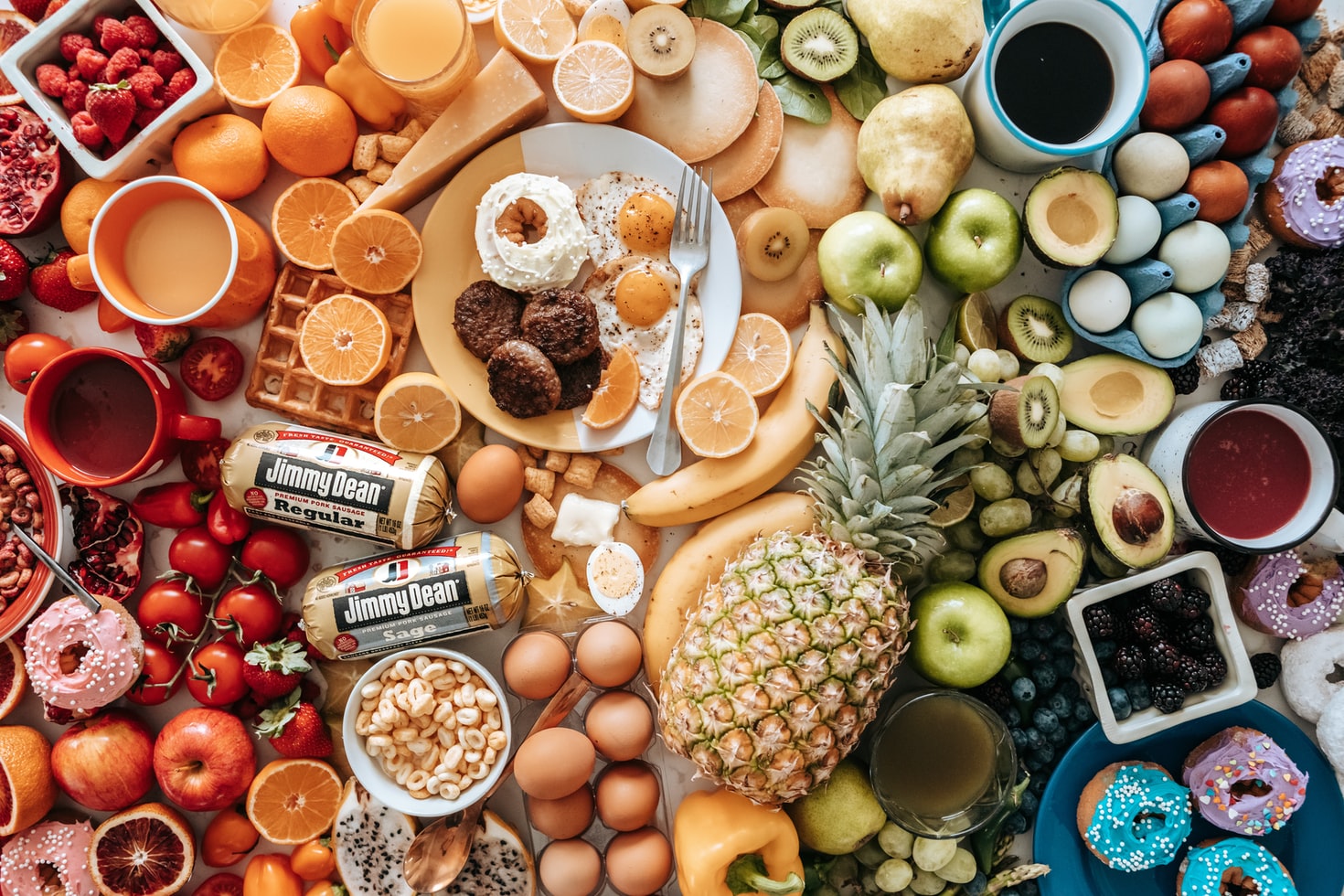Disclaimer: If you have some sort of health condition that requires you to stick to a certain diet, please listen to your healthcare provider on this. In this article when mentioning “diet” I am referring to the group of diets that are not followed due to a dietary issue, but more for the goal of weight loss, “detox” and so forth. That being said, whether or not you follow a diet due to a dietary issue. I think the concept of intuitive eating is worth considering in a way that would not endanger your health.
Especially with the start of a new year, trying new diets is on most people’s minds again. And diets are alluring: they promise weight loss and becoming healthier, and when dealing with stress, like figuring out how to deal with racism in the workplace, it can be great to not have to think about what to eat because the choices have been made for you in advance
For me, growing up with one parent whose job involves analyzing health statistics and another who frequently diets with the goal of weight loss, I developed basic anxiety around eating. I could keep it in check most of the time, but there were days when I would just feel so overwhelmed with what I “should” be eating, that I just got hungrier and hungrier while trying to decide what to eat and then inevitably for the quick and easy fix which is usually not a healthy one. And then I felt a bit guilty afterward.
Then came a year of mostly sitting at home due to covid 19 and I decided to do something about this. Many of us became remote workers in March 2020 which put us at an even higher risk for bad eating patterns (and if you are still looking for a remote job, here’s an article about interview questions for remote workers!). I started listening to the Health at Every Size: The Surprising Truth About Your Weight audiobook that talked about intuitive eating. I gave it a shot and I have felt my relationship with food become more relaxed.
So what is this magical intuitive eating I speak of? Intuitive eating as a concept focuses on you re-learning to listen to your sensation of hunger: eating when you are hungry and stopping when you are not. Listening to what your body craves. This sounds insanely easy and yet it is harder than you think.
As children, we are taught things like “finish what is on your plate,” or that if we have a family sit-down meal we should eat, regardless of how hungry we are, and that accepting food offerings from others is expected as an expression of appreciation or connection. And speaking from experience, these habits are hard to shake. Eating for many of us is not just about feeding our body but wrapped up in notions of what is healthy (i.e. the morally good choice) and unhealthy (i.e. the morally bad choice). Which is linked to weight and body image, which is linked to what we judge as attractive and unattractive. Thus it is very easy to stop focusing on what feels good in our bodies. In such time you can go through this article that motivated and suggest you some amazing tips for balancing your diet.
When following intuitive eating, the goal is to strip foods and eating from negative and positive feelings that are not the physical sensation. To shift thinking from “I ate an unhealthy food so I need to go exercise” or “I did well on my test so I deserve a treat I don’t eat otherwise”. Here, I want to note, that as a “recovering perfectionist”, the ultimate goal is to be kind to yourself. Switching to a new way of approaching eating doesn’t happen overnight, and you don’t have to “always do it perfectly” to feel a sense of accomplishment. Baby steps.
You might be thinking: “Wait, if I eat whatever I feel like, wouldn’t I just eat junk food all the time? Surely that’s isn’t a healthy solution!” What I and others practicing intuitive eating have experienced is that you might overeat ceratin “junk foods” when you start out, but in the long run, these cravings subside to a degree. Part of the lure of junk food is that we crave what we cannot have. It stays on our minds because we can’t have it. See, ideally, the reason you don’t eat a whole cake by yourself isn’t because someone told you you shouldn’t, but because after a certain point your body is going to signal to you that it has had enough. More on this in this video.
I noticed when I started to follow intuitive eating, that I would quickly become aware of the slightest tingle of hunger and kind of panic in my mind, to make it go away as soon as possible. When in fact being slightly hungry is okay (for me). One of the tools of intuitive eating is to view our sensation of hunger on a scale of 0-10, where 0 is when you are famished, even nauseous or dizzy from hunger, and 10 is being uncomfortably full (which is how I used to feel after most Thanksgivings). And what causes you less physical and emotional discomfort is if you aim to stick in the 3-7 range. More on this in this video.The 10 key principles of intuitive eating are outlined in this article. If you want to learn more, you can also pick up this book on intuitive eating from health two professionals in the field of nutrition and eating disorders: Intuitive Eating: A Revolutionary Anti-Diet Approach.


